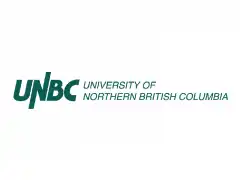Bachelor of Health Sciences - Natural Resources Planning
- 4 years
- Duration
- Upon request
- Price
- Rolling admission
- Start
- Rolling admission
- Deadline
- Bachelor
- Degree
- Campus
- Format
- Prince George / Canada
- Location
Program description
This curriculum covers project-level and large-scale environmental planning challenges in developments that harm nature.
Provincial land use planning, environmental assessment, watershed planning, and integrated resource management.
Prince George and northern British Columbia offer a living laboratory to test ideas, share thoughts, and find solutions. Living in the region will shape what and how you learn about northern communities and First Nations, the effects of resource exploitation on the landscape and people, and the need for fresh approaches to long-standing social and environmental concerns.
Biology, geography, environmental science, First Nations studies, forestry, economics, international studies, outdoor recreation and tourist management, and School of Environmental Planning Courses can help you understand the world.
Program structure
Lower-Division
- Introductory Ecology
- Ecology
- Cartography and Geomatics
- Integrated Resource Management
Three of the following, minimum 9 credit hours:
- Introductory Biology I
- Introductory Biology I Laboratory
- Introductory Biology II
- Introductory Biology II Laboratory
- General Chemistry I
- General Chemistry Lab I
- Weather and Climate
- Introduction to Aquatic Systems
- The Aboriginal Peoples of Canada
- Introduction to Traditional Environmental Knowledge
- Introduction to Soil Science
- Introduction to Global Studies
- Precalculus
- Introduction to Natural Resources Management and Conservation
- Food, Agriculture, and Society
- Resource Inventories and Measurements
- Introduction to Wildlife and Fisheries
- Sustainable Outdoor Recreation and Tourism
Upper-Division
- Natural Resources Planning
- Watershed Management
Three of the following, minimum 9 credit hours:
- Limnology
- Conservation Biology
- Environmental Economics and Environmental Policy
- Forestry Economics
- Cost Benefit Analysis
- Field School in Planning
- Advanced First Nations Community and Environmental Planning
- Undergraduate Thesis
- Professional Report
- Internship
- Low Carbon Energy Development
- Northern Contaminated Environments
- Biometeorology
- Waste Management
- Air Pollution
- Climate Change and Global Warming
- Natural Resources, Environmental Issues and Public Engagement
- Traditional Use Studies
- Tenure, Conflict, and Resource Geography
- Global Resources
- Aboriginal Perspectives on Land and Resource Management
- Agroforestry
- Recreation and Tourism Impacts
- Protected Area Planning and Management
- Society, Policy and Administration of Natural Resources
- Society, Policy, and Administration
- Law and Municipal Government
Price
Requirements for applicants
- Meet UNBC's English language requirements
- Meet the international admission requirements by country or meet the admission with a General Certificate of Education (or equivalent)
- Complete the required high school course equivalencies outlined in the Domestic tab prior.
About the university

One of Canada's top universities, UNBC is situated in the breathtaking scenery of northern British Columbia.
Excellent undergraduate and graduate learning opportunities are offered by UNBC in the areas of cultures, economics, health, sciences, and the environment. We share the exhilaration of new knowledge with our students and the results of our teaching and research with the world as one of British Columbia's research-intensive institutions. UNBC is a welcome place with a warm, inclusive, and supportive learning environment in addition to cultivating and celebrating academic excellence.
The University of the North by and for the North is UNBC. Our students, alumni, teachers, staff, and the communities we serve all feel a strong sense of ownership, purpose, and adventure as a result of our goal. We are also Canada's Green UniversityTM, paving the road for everyone's future to be more sustainable.
Vision
To affect people's lives and communities in the North and around the world while being Canada's top destination university in terms of personal character.
Mission
To have an impact on the world today and inspire future leaders.
UNBC's Academic Structure
- Faculty of Environment
- Faculty of Business and Economics
- Faculty of Human and Health Sciences
- Faculty of Indigenous Studies, Social Sciences and Humanities
- Faculty of Science and Engineering
- Division of Medical Sciences
Read more about University of Northern British Columbia, Canada





